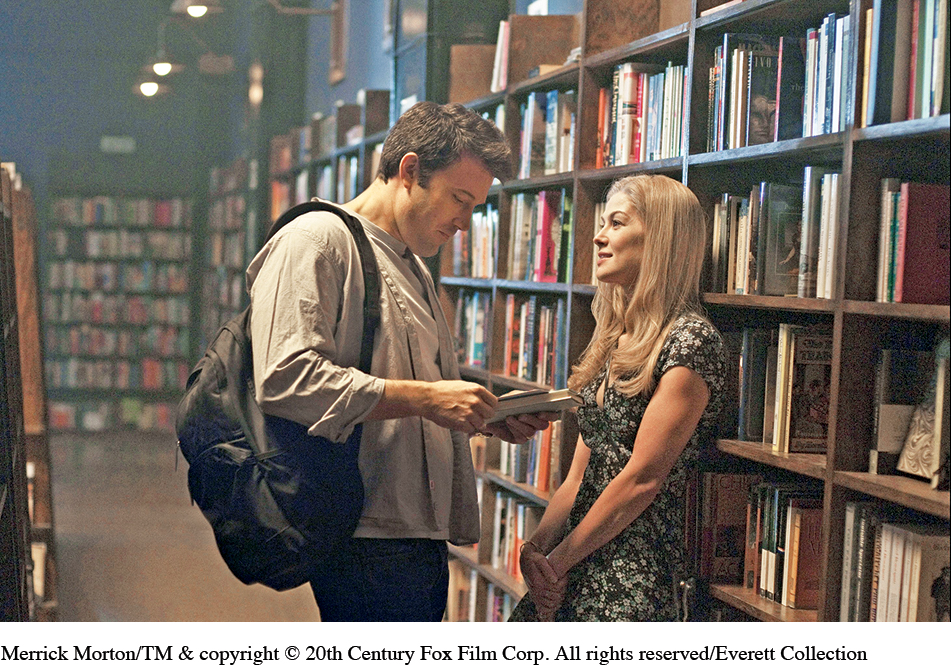The Dark Side of Romantic Relationships

In Kaui Hart Hemmings’s novel The Descendants (2008), attorney Matt King is the descendant of native Hawaiian royalty, whose wife Joanie is in an irreversible coma. Suddenly a single parent, Matt must try to reconnect emotionally with two daughters from whom he has long been detached. Complicating matters further, he discovers that Joanie—whom he had considered his best friend, sparring partner, and closest confidante—was cheating on him before the accident and had planned to divorce him. In the climactic scene of the book, he puts the pain of her betrayal to rest:
I bow my head and speak to Joanie softly. “I’m sorry I didn’t give you everything you wanted. I wasn’t everything you wanted. You were everything I wanted. Every day. Home. There you are. Dinner, dishes, TV. Weekends at the beach. You go here. I go there. Parties. Home to complain about the party.” I can’t think of anything else. Just our routine together. “I forgive you,” I say. Why is it so hard to articulate love, yet so easy to express disappointment? (Hemmings, 2011, pp. 235–236)
Romantic love inspires us to strive toward a host of ideals, including compassion, caring, generosity, and selflessness. But romance has a dark side as well. As scholar Robin Kowalski pointedly puts it, “people in romantic relationships do a lot of mean and nasty things to one another” (Kowalski et al., 2003, p. 472). And when they do, the result is often unparalleled pain and despair. In this section, we explore some of the most troubling issues related to romance—betrayal, jealousy, intrusion, and violence—and discuss communication strategies for addressing them.
BETRAYAL
As illustrated in The Descendants, betrayal is one of the most devastating experiences that can occur in a close involvement (Haden & Hojjat, 2006). Romantic betrayal is defined as an act that goes against expectations of a romantic relationship and, as a result, causes pain to a partner (Jones, Moore, Scratter, & Negel, 2001). Common examples include sexual infidelity (engaging in sexual activity with someone else), emotional infidelity (developing a strong romantic attachment to someone else), deception (intentional manipulation of information), and disloyalty (hurting your partner to benefit yourself). But any behavior that violates norms of loyalty and trustworthiness can be considered betrayal.
In romantic relationships, partners inevitably behave in ways that defy each other’s expectations and cause disappointment. But betrayal is different. Betrayal is intentional. As a result, it typically evokes two intense, negative reactions in betrayed partners. The first is an overwhelming sense of relational devaluation—the realization that our partner does not love and respect us as much as we thought he or she did (Leary, 2001). This sense of devaluation, which is triggered most by sexual infidelity and deception, is difficult to overcome and often leads us to abandon our relationships. The second is a profound sense of loss. In the wake of betrayal, we may feel that all the time and effort we invested in our partner and the relationship were a waste, and that intimacy, commitment, and trust have been permanently destroyed (Haden & Hojjat, 2006). Consequently, when you are betrayed by a lover, expect to feel grief over the loss of the relationship that was. (See Chapter 4 for more on grief management.)

Sexual Infidelity The most destructive form of romantic betrayal is sexual infidelity. A partner who cheats on you has broken a fundamental sacrament—the spoken or unspoken pledge to remain faithful. Not surprisingly, many people react to infidelity with a strong urge to leave their partner. One study found that more than 20 percent of American women and men would consider divorce if a spouse passionately kissed someone else, more than 30 percent would consider divorce if their spouse had a romantic date with another person, and more than 60 percent would consider divorce if their spouse had a serious (sexual) affair (Shackelford & Buss, 1997). Whether or not a sexual dalliance is planned matters little: cheaters’ original intentions have no impact on subsequent feelings of blame by their partner (Mongeau, Hale, & Alles, 1994). At the same time, method of discovery has a pronounced effect on subsequent outcomes, including whether the relationship will endure, as well as whether the betrayed person will forgive the betrayer (Afifi, Falato, & Weiner, 2001). Relationships are most likely to survive sexual infidelity, and cheaters are most likely to be forgiven by their partner, when they confess their betrayals without being asked. In contrast, when the infidelity is discovered by catching the cheater in the act, relationships are unlikely to survive (83 percent of such relationships end), and forgiveness is low (Afifi et al., 2001).
For college students in dating relationships, the two strongest predictors of sexual infidelity appear to be a ludus (see Table 11.1, p. 290 Romantic Love Types) love attitude and high sexual sensation-seeking: students who “enjoy playing the game of love with a number of different partners” and who also “like wild and uninhibited sexual encounters” are more likely to sexually cheat on dating partners than those who don’t possess such preferences (Wiederman & Hurd, 1999). In addition, across a broad range of specific sexual behaviors, including kissing and fondling, performing oral sex, receiving oral sex, and engaging in sexual intercourse, male dating partners are more likely to cheat than female dating partners (Wiederman & Hurd, 1999).
self-reflection
Think about Buss’s dilemma. Which would you find more upsetting: discovering that your romantic partner had formed an emotional attachment outside of the relationship or that he or she had been sexually unfaithful? If your partner did betray you in one of these ways, how would you respond?
Although both men and women view infidelity as treasonous, their perceptions diverge when they’re asked to compare sexual with emotional cheating. Infidelity researcher David Buss presented study respondents with the following dilemma (Buss, Larsen, Westen, & Semmelroth, 1992). Imagine you discover that your partner has become interested in someone else. What would distress you more: your partner forming a deep emotional attachment to that person, or your partner enjoying passionate sex with that person? Sixty percent of men said that sex would upset them more, but 83 percent of women said they’d find the emotional attachment more distressing. The same pattern of results was found in samples of men and women from Sweden, the Netherlands, Germany, Korea, and Japan (Buss et al., 1999; Buunk, Angleitner, Oubaid, & Buss, 1996; Wiederman & Kendall, 1999).

Deception As defined in Chapter 7, deception involves misleading your partner by intentionally withholding information, presenting false information, or making your message unnecessarily irrelevant or ambiguous (McCornack, 1997). Despite media images depicting romantic partners catching each other in lies, most people discover lies indirectly, through hearing about them from a third party or stumbling across damning evidence, such as a text message or e-mail (Park, Levine, McCornack, Morrison, & Ferrara, 2002). When partners discover a lie, the experience typically is emotionally intense and negative. One study looking at the emotional and relational aftermath of lies found that 16 percent of people who recalled having discovered a lie reported breaking up because of it (McCornack & Levine, 1990). That decision was usually determined by the severity of the lie. If the lie was “important” (for example, lying about relationship feelings), people were more likely to end their involvement (McCornack & Levine, 1990).
Dealing with Betrayal The truth about romantic betrayal is that no simple solution or skill set will remedy the sense of devaluation and loss that results. The strongest predictor of what happens afterward is the seriousness of the betrayal. If a betrayal permanently stains your perception of your partner, the relationship probably won’t survive. If you believe you can eventually overcome the pain, then your relationship has a chance.
People struggling to cope with betrayal commonly adopt one of four general communication approaches (Rusbult, 1987). You can actively confront the betrayal, seeking to understand the conditions that led to it and jointly working with your partner to change those causes. You can quietly stand by your partner, choosing to forgive and forget and trusting that, in time, your love will heal the pain you feel. You can stand by your partner but simmer with pain and rage, venting your anger by constantly reminding the person of his or her transgression or withholding sex or other rewards. Or you can simply end the relationship, believing that the emotional costs associated with the betrayal are too substantial to surmount.
Regardless of which approach you take, the hard truth is that after a betrayal, your relationship will never be the same, and it will never be “better” than it previously was in terms of trust, intimacy, and satisfaction. You can certainly rebuild a strong and enduring relationship, but it will always be scarred. As my therapist friend Joe says, “You will never get over it. You just learn to live with it.”